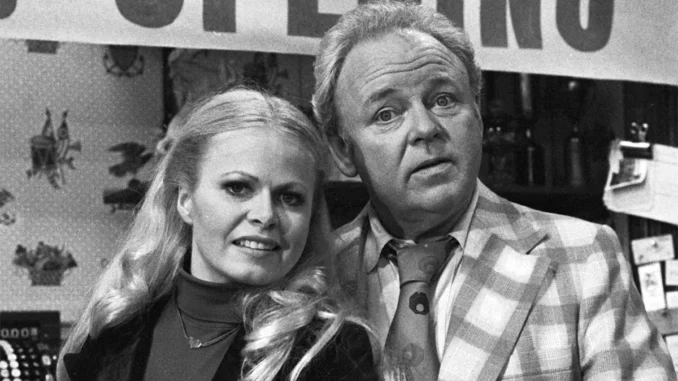
The Evolution of Archie Bunker in All in the Family
Archie Bunker, the central character of the iconic 1970s sitcom All in the Family, remains one of television’s most complex and controversial figures. Portrayed by Carroll O’Connor, Archie was introduced as a narrow-minded, working-class man with deeply ingrained prejudices. However, as the show progressed, his character underwent a transformation that turned him into a more sympathetic and even lovable father figure. This evolution made All in the Family not only one of the most influential sitcoms in history but also a significant reflection of American society during a time of great change.
The Initial Controversy: Archie Bunker’s Racist Views
When All in the Family premiered in 1971, Archie Bunker was portrayed as an unapologetic bigot, voicing racist, sexist, and xenophobic opinions. His clashes with his liberal son-in-law, Michael “Meathead” Stivic, provided much of the show’s conflict and humor. While Archie’s views were offensive, the show’s writers cleverly used satire to expose the absurdity of his prejudices. Despite this, some viewers saw Archie as a hero rather than a figure of critique, highlighting the complexities of tackling social issues through comedy.
The Gradual Softening: A More Human Side Emerges
As the seasons progressed, Archie’s character began to show more depth. While he never completely abandoned his conservative beliefs, moments of vulnerability and genuine love for his family softened his rough exterior. His relationship with his wife, Edith, was a prime example of this. Despite often calling her “Dingbat,” his affection for her was undeniable. Additionally, his interactions with his granddaughter, Joey, and his changing views on race and gender roles subtly demonstrated his growth.
The Shift in American Culture Reflected in Archie
Archie Bunker’s transformation was not just a character development choice but a reflection of changing American attitudes in the 1970s. The show tackled issues such as racism, feminism, and LGBTQ+ rights, often challenging viewers to reconsider their own biases. As America moved forward, so did Archie—albeit slowly and reluctantly. By the later seasons, he became more accepting, particularly towards African American and LGBTQ+ characters, showing that even the most stubborn individuals could evolve.
Archie Bunker’s Legacy: A Timeless Character
Archie Bunker remains one of television’s most memorable characters because of his complexity. He started as a symbol of outdated, bigoted views but evolved into a more understanding and loving father figure. All in the Family succeeded in using humor to address serious social issues, leaving a lasting impact on television storytelling. Even today, Archie’s journey serves as a reminder that people can change, even if it takes time.
Conclusion
From a racist curmudgeon to a lovable, albeit flawed, patriarch, Archie Bunker’s transformation in All in the Family made him an unforgettable part of television history. His journey reflects the struggles of a changing America and continues to spark discussions about personal growth and societal evolution. As audiences revisit the show, they can appreciate both the humor and the hard-hitting social commentary that made Archie Bunker a cultural icon.